
WHAT IS THERE TO KNOW?
Offering advice, social spaces, personal development opportunities, clubs & societies and more - the Union does a lot! It is important we balance our finances to ensure that we are operating in a sustainable way.
Imperial College Union is a large and complex organisation. We cover a lot of areas, aiming to enhance the student experience at university. Operating in a financially sustainable way can sometimes be difficult, so here you will find a broad overview of our finances, including our budget, how decisions are taken, and what the impact of those decisions could be, as well as ways we save you money.

We are a charity, which means that there are no profits. Any surplus we do generate through trading goes towards funding things like our advice service and student groups, or is saved for a large future investment.
Since we are a charity, this also means that we publish our annual accounts online, where we report on the previous year’s work and detail our financial activities, as required by the Charities Act 2006. Our accounts are formally presented and approved by our Board of Trustees at the start of each academic year. This document is summarised below in the following sections.
Annual Finance Report Who are our Trustees?
OUR BUDGET
In order to make sure we offer the best possible value for money, while ensuring we still operate in a sustainable way, we set an annual budget for all areas of the Union and use it to guide our operations each year.
When it comes to setting our budget we use a number of different mechanisms to ensure we can deliver everything we want to in the next academic year. This includes forecasting income and expenditure across our venues, looking at past performance in our teams, and understanding the themes set out by the Board of Trustees.
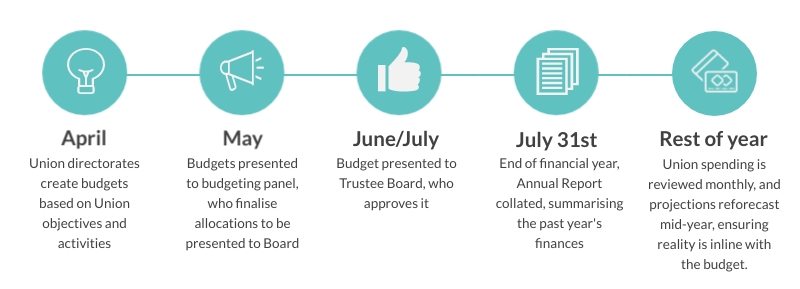
Each direcorate uses this information to write and submit a budget for their areas, which is then finalised by a budgeting panel consisiting of the Managing Director, the Union President, the Head of Finance and Resources, and the Deputy President (Finance & Services). Once this work is complete our Trustees review and approve the budget. This sets out how we will allocate our limited financial resources, and defines the targets our trading services must meet to deliver everything we want to do. The budget is then used by staff to ensure we are delivering the best possible service to you that we can afford.
THE BREAKDOWN
Running the charitable side of the Union, excluding our 2 shops and 5 bars, cost £6,194,657 in 2017/18.
To put things into context, this is £3,605,848 more than the College gave us in annual block grant and “free” services, so we needed to make up the difference ourselves. We do this by generating a contribution through a variety of trading activities, such as our shops and bars, as well as through advertising, sponsorship, minibus hire, associate memberships and investments. On top of this, clubs and societies also generated additional income for themselves, through events, membership fees and sponsorship, which can only be spent by the individual club.
Income
Our Union income can be split into six main areas, as shown below. However, this diagram only shows part of the picture.
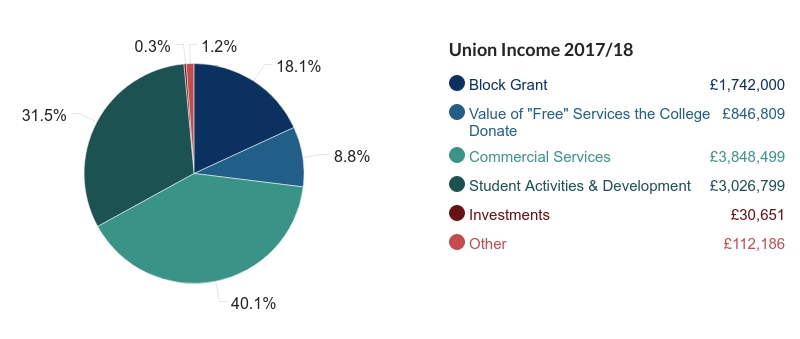
A more realistic way of looking at the Union's income is to consider the ‘usable’ or net income. For example, while the commercial services income is stated as £3.85 million, this represents the takings at the Union’s outlets – FiveSixEight, Union Bar, Metric, h-bar, Reynolds, Union Shop, Shop Extra and the online Union Shop. If you factor in the direct costs of selling the products – called the cost of sales – plus the wage costs of the people staffing our outlets, the surplus made is roughly £0.61 million, which is what we call the 'usable income' from commercial services.
Looking at the income diagram above and adding together the annual block grant from the University, the other sources of income, and the usable income portion from our commercial activities, this leaves us a total of £6,372,066 of income which can be put towards funding our other areas of expenditure. This funding is then split between Student Activities and Development, Student Voice, and Support Costs.
We could generate more usable income by raising food and drink prices, or giving less money to clubs and socs for example - however we try not to do this as we want to make the Union's outlets and activities as accessible as possible, for as many students as possible, by keeping prices low to provide value for money.
Expenditure
There are a lot of costs to consider and we regularly review our costs to make sure we are spending in the most efficient ways while keeping within budget. Our expenditure can be grouped into 3 main areas: Student Activities & Development, Student Voice, and Support Costs. While support costs may seem high, if you consider that we need to keep our 5 bars, 2 shops and all our activities spaces clean, we need ICT for over 60 workstations, we need a Systems team to keep eActivities, eVoting and our websites functioning, we need to ensure all our income and expenditure is accurately processed, and we need all our staff to be recruited, trained and paid each month, the costs soon begin to add up.
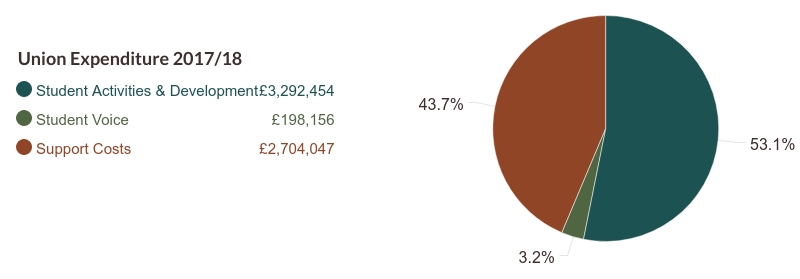
How do we help you save money?
It goes unnoticed a lot of the time, but the Union is here for you and is trying to help save you money on every day things. How? Well scroll through images below to find out!
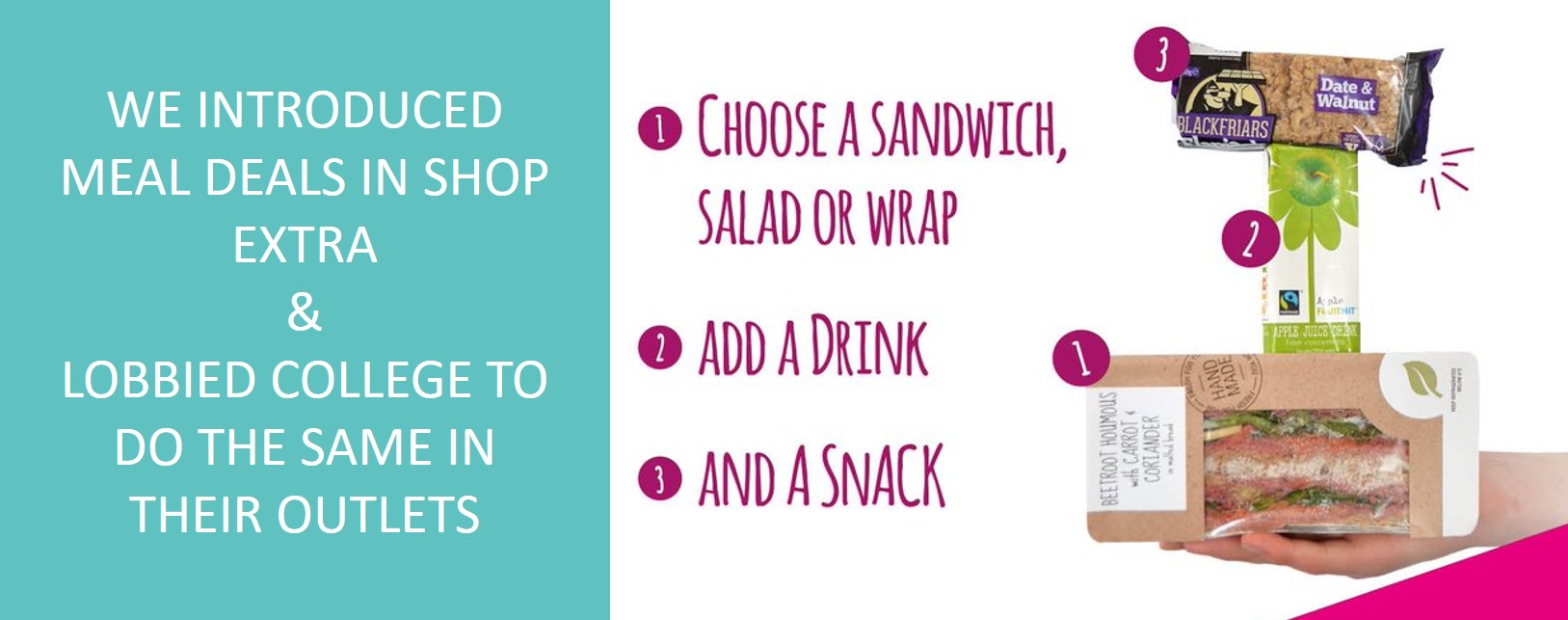 £3.50 meal deals now available in all outlets
£3.50 meal deals now available in all outlets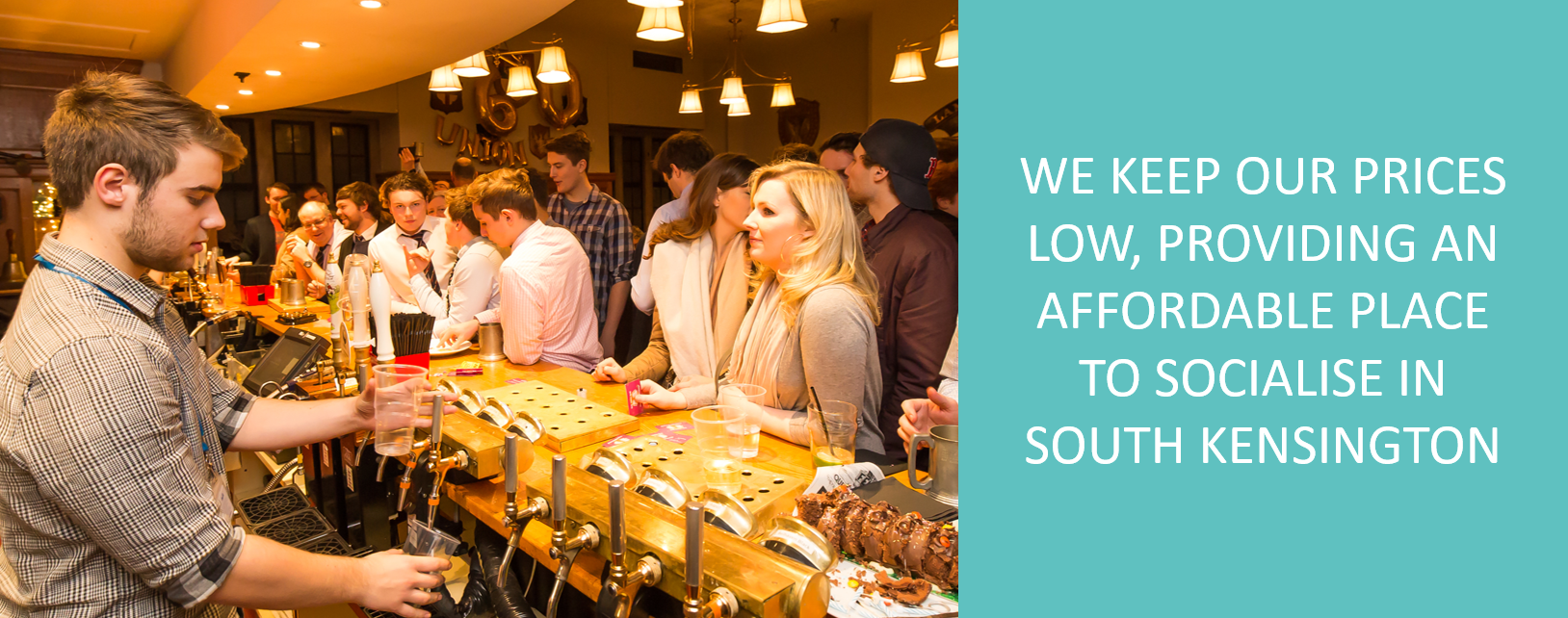 Subsidising drinks and providing affordable places to socialise in South Kensington
Subsidising drinks and providing affordable places to socialise in South Kensington Free confidential and legal advice
Free confidential and legal advice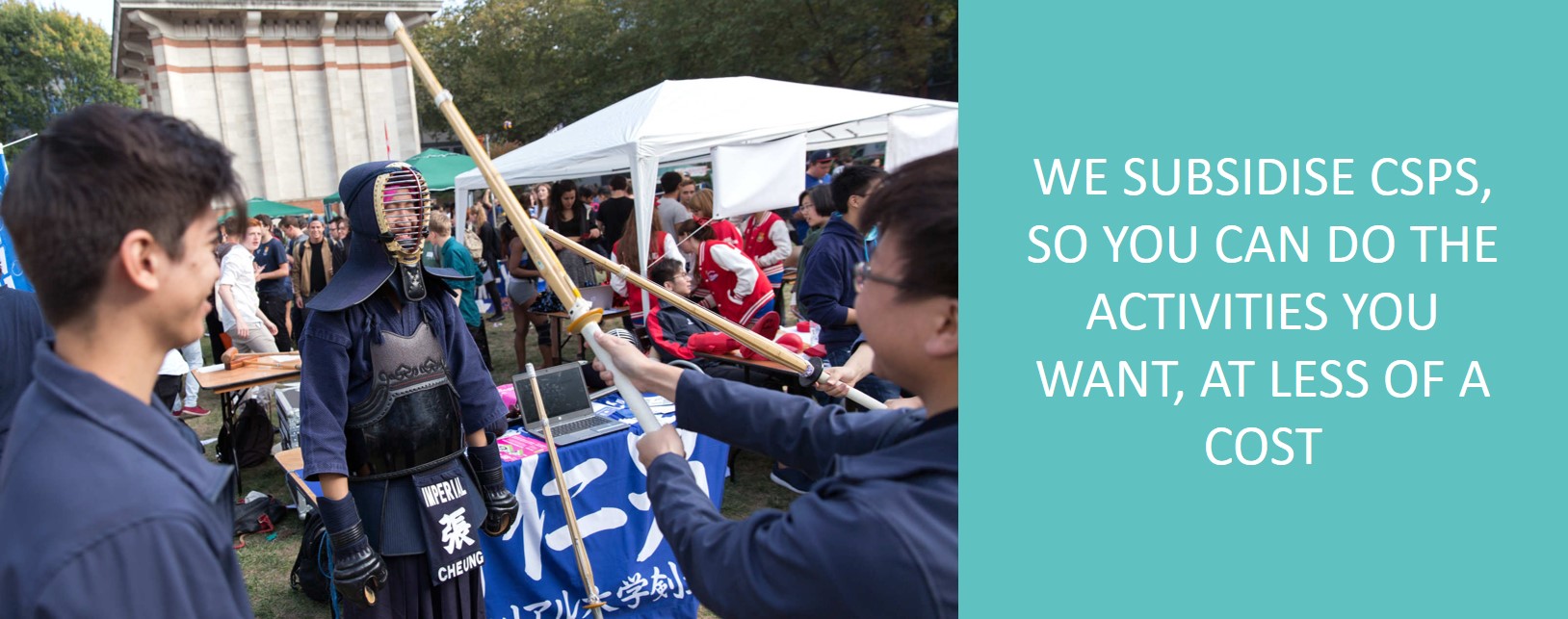 Subsidise CSP activities
Subsidise CSP activities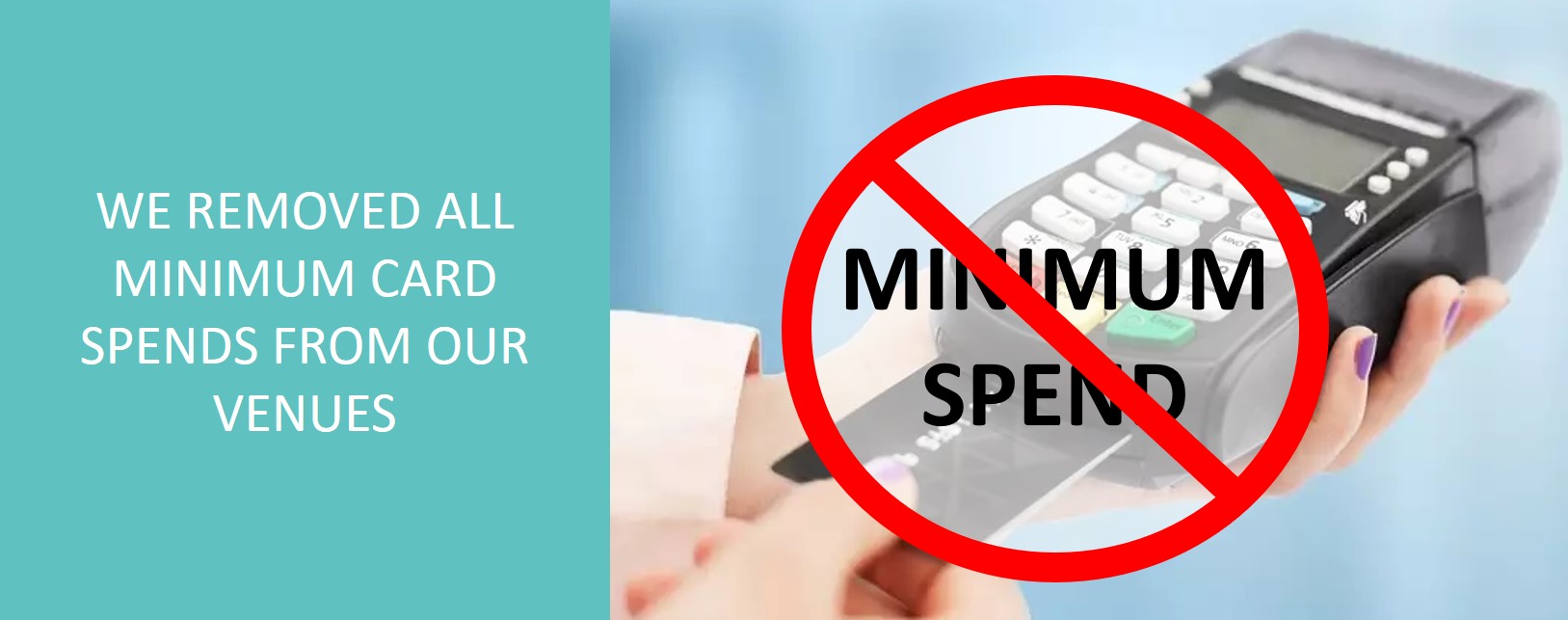 No more minimum card spends since 2016
No more minimum card spends since 2016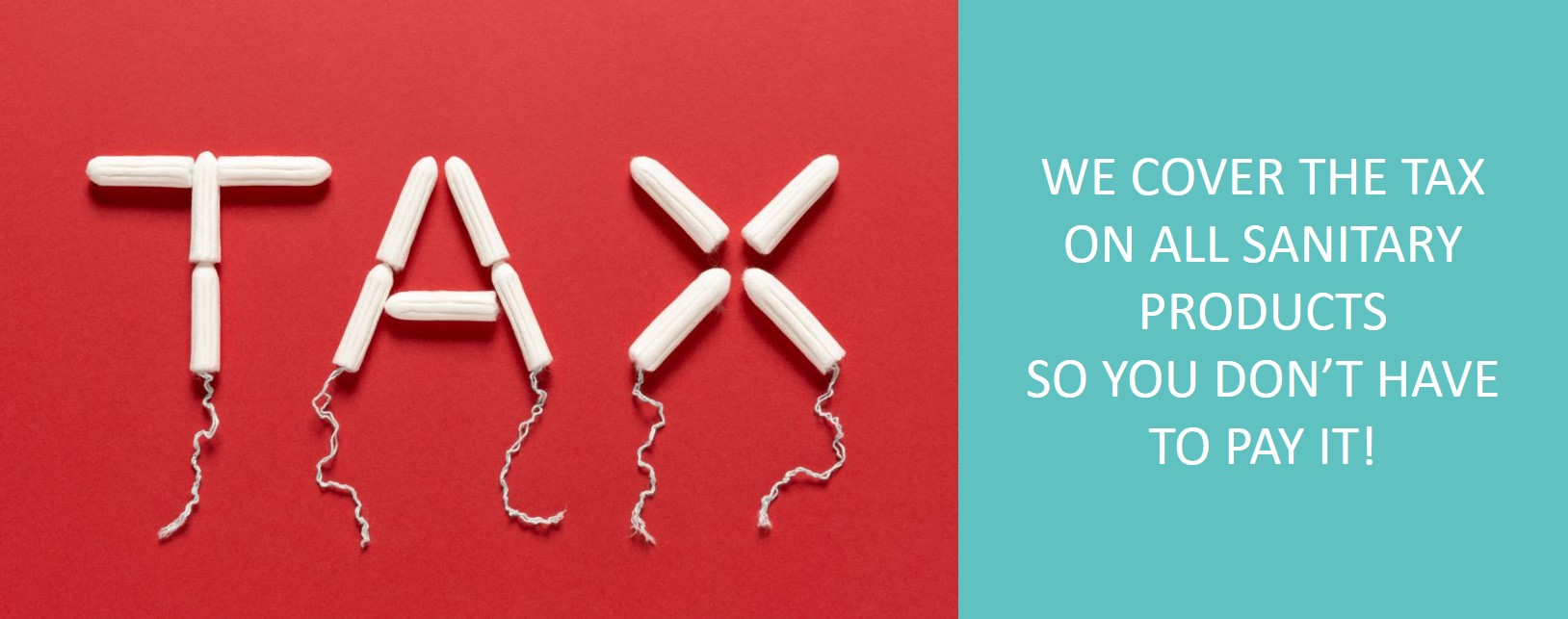 We pay the sanitary product tax, not you!
We pay the sanitary product tax, not you!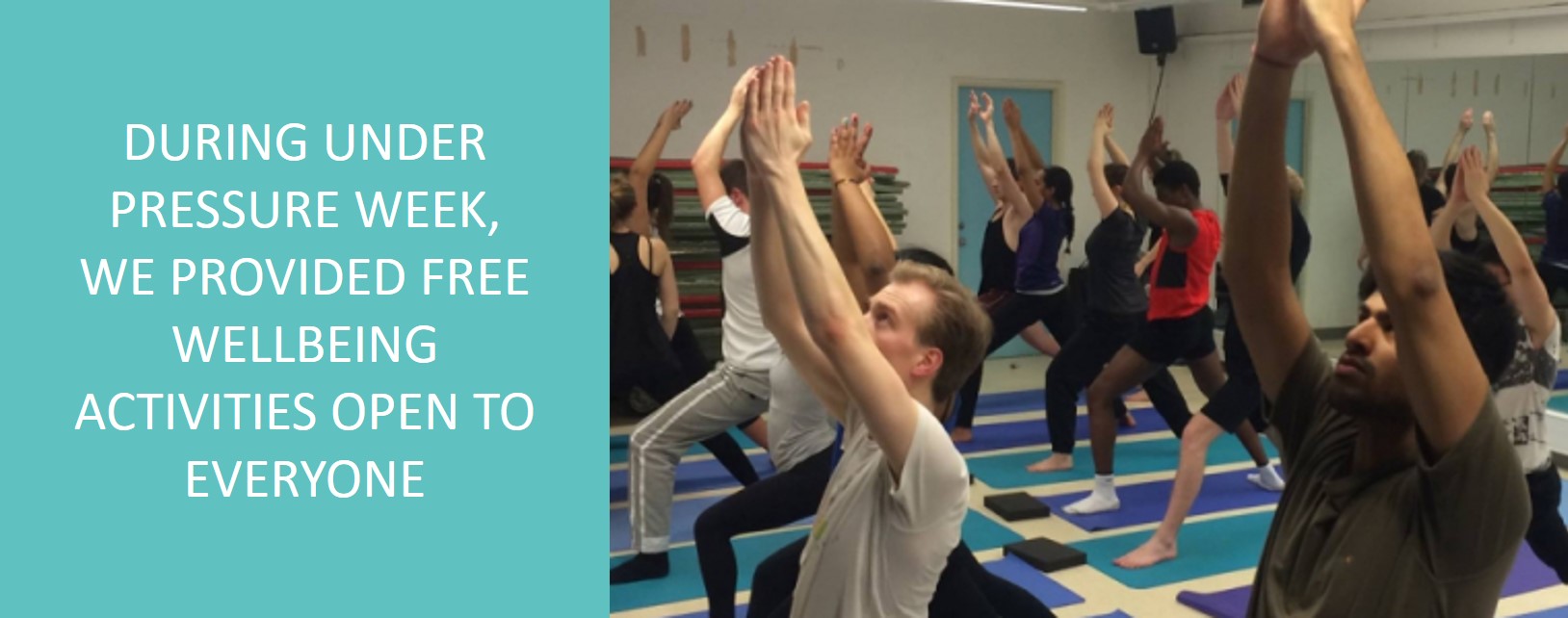 Free wellbeing activities
Free wellbeing activities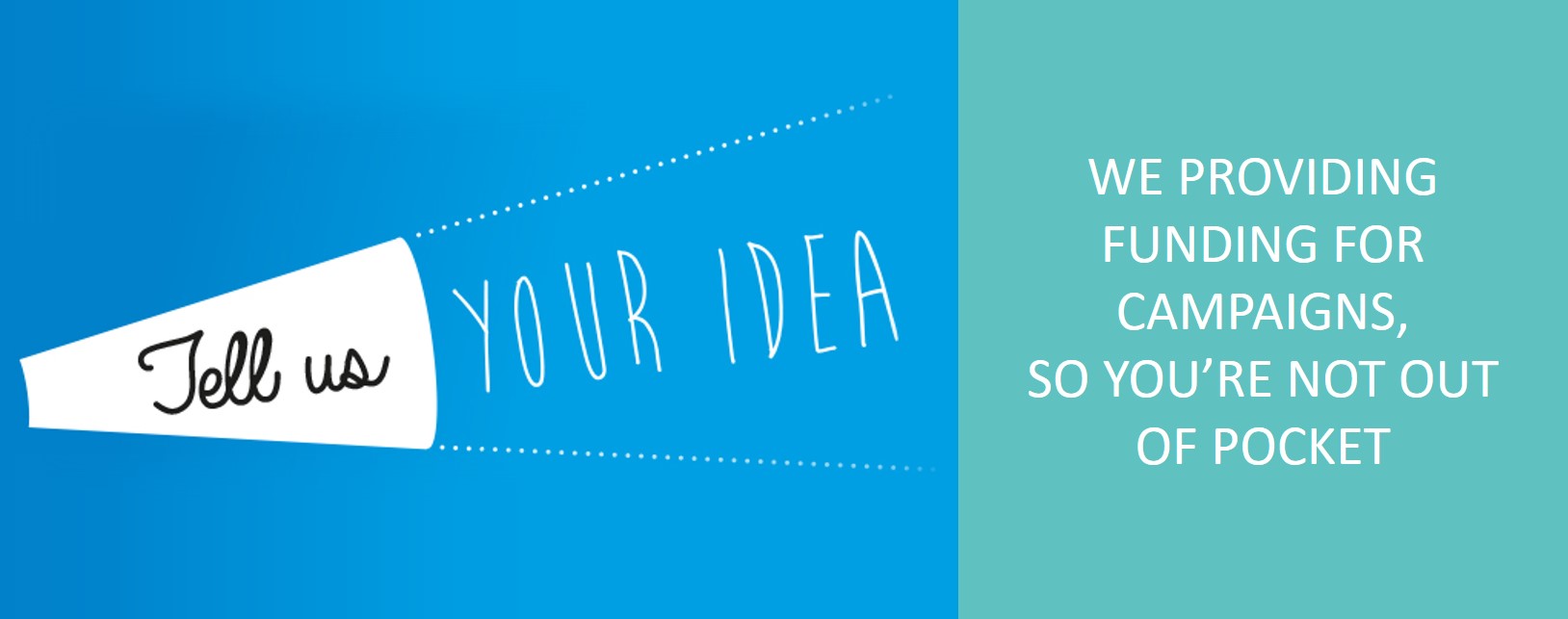 Provide funding for your campaigns
Provide funding for your campaigns We pay the transaction fees for you
We pay the transaction fees for you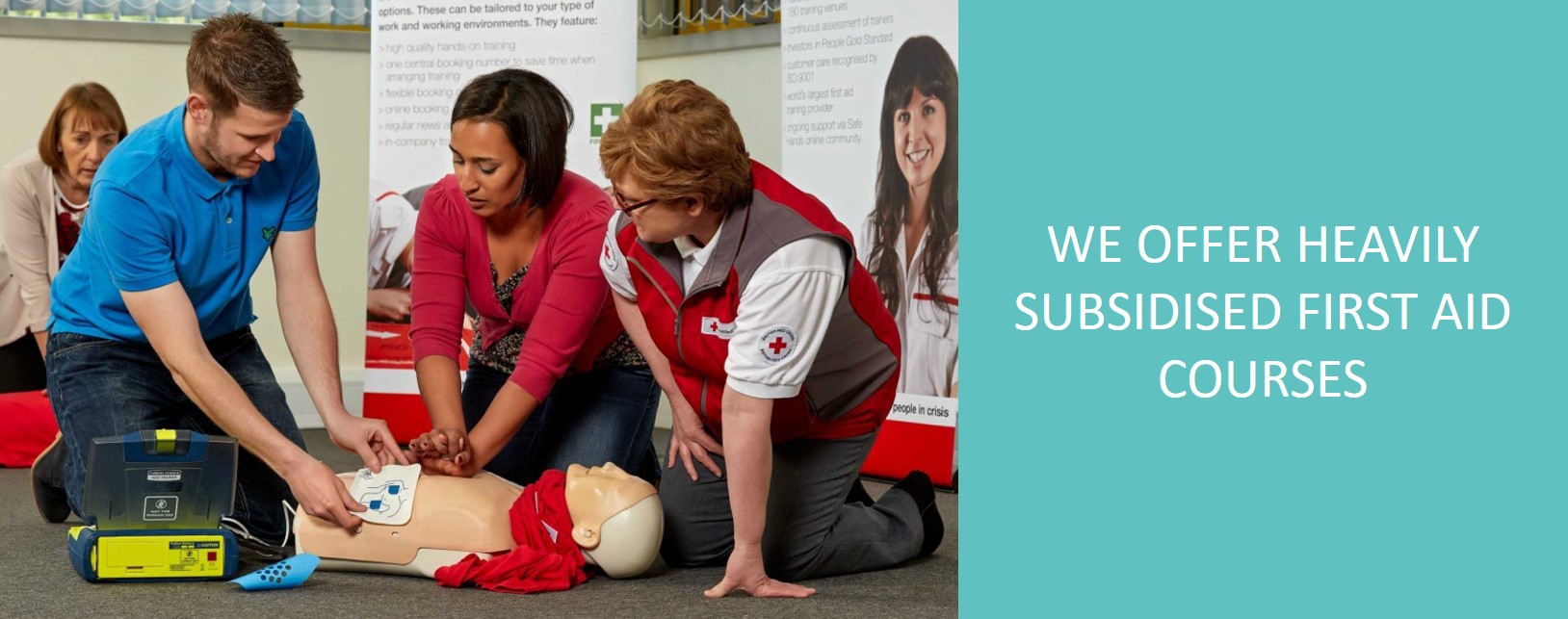 Heavily subsidised first aid courses
Heavily subsidised first aid courses Easily accessible sexual health supplies
Easily accessible sexual health supplies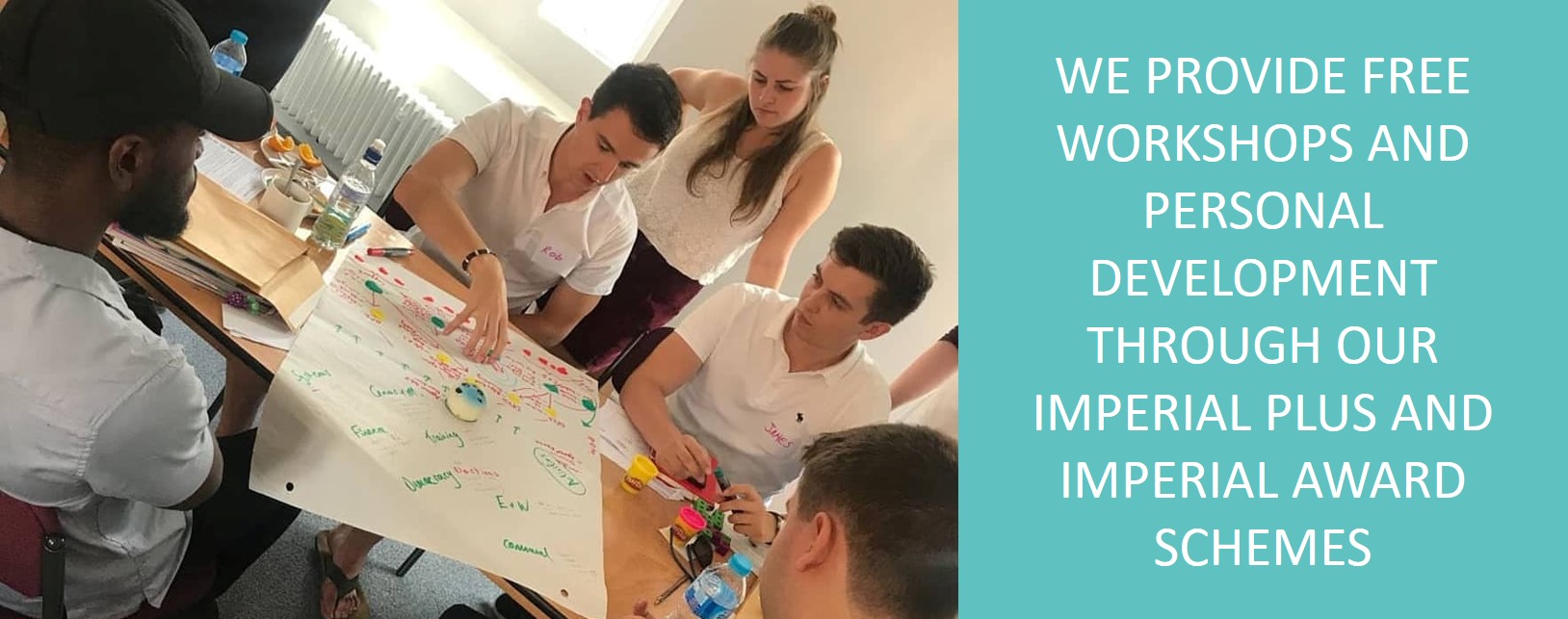 Workshops to improve your skill set, without the normal costs
Workshops to improve your skill set, without the normal costs
WHAT IF?
When viewed in isolation, it can be easy to think ‘this should cost less’ or ‘we should spend more on X'. In reality, decisions are not simple as they will have an impact on at least one area of the organisation and therefore need to be carefully considered. The Board of Trustees delegates authority to the Managing Director, the Leadership Team (Officer Trustees + Senior Management + ICSM President) and individual staff members to make spending decisions within the approved budget.
Setting budgets and prices require a balanced approach. Give it a go! Use the sliders below to see for yourself what the impact of some of your choices may be.
Cost of a VK:
£2.60, our current price in our bars
Cost of a plate of curly fries
£1.90, our current price in our bars
Cost of a jagerbomb
£2.80, our current price in our bars
Cost of a Shop Extra Meal Deal
£3.50, our meal deal from Shop Extra on Sherfield Walkway (a.k.a. the pick n' mix/flapjack shop)
Cost of coffee (americano)
£1.00, our price of an Americano in Shop Extra - for all those coffee lovers, we suggest you visit Shop Extra now on Sherfield Walkway and grab a cuppa...we have dairy and non-dairy milk options too!
Cost of a 15 seater minibus to Harlington Sports Grounds and back
£58, the price of renting our Union minibuses for 2-4 hours
